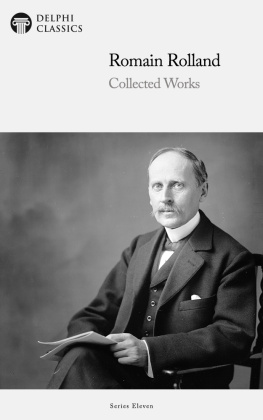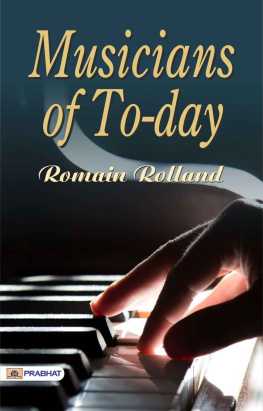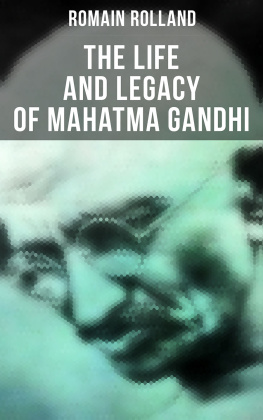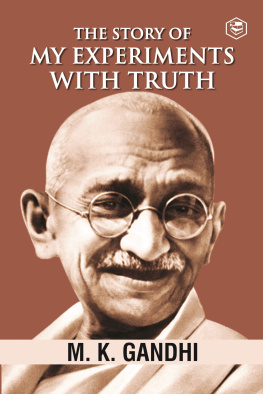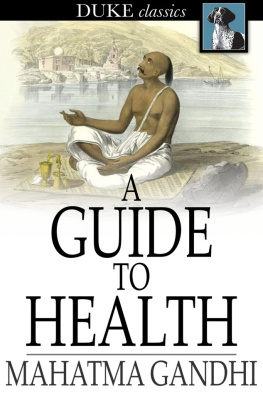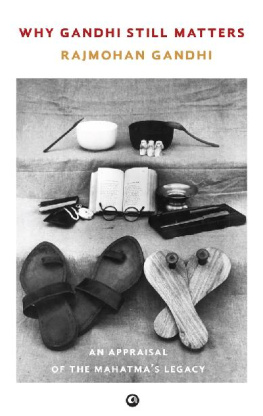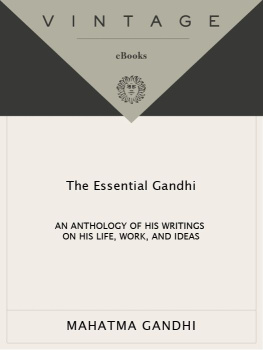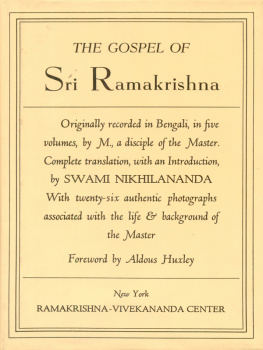Romain Rolland - Mahatma Gandhi: The Man who Became One with the Universal Being
Here you can read online Romain Rolland - Mahatma Gandhi: The Man who Became One with the Universal Being full text of the book (entire story) in english for free. Download pdf and epub, get meaning, cover and reviews about this ebook. publisher: Srishti Publishers & Distributors, genre: Politics. Description of the work, (preface) as well as reviews are available. Best literature library LitArk.com created for fans of good reading and offers a wide selection of genres:
Romance novel
Science fiction
Adventure
Detective
Science
History
Home and family
Prose
Art
Politics
Computer
Non-fiction
Religion
Business
Children
Humor
Choose a favorite category and find really read worthwhile books. Enjoy immersion in the world of imagination, feel the emotions of the characters or learn something new for yourself, make an fascinating discovery.

- Book:Mahatma Gandhi: The Man who Became One with the Universal Being
- Author:
- Publisher:Srishti Publishers & Distributors
- Genre:
- Rating:5 / 5
- Favourites:Add to favourites
- Your mark:
- 100
- 1
- 2
- 3
- 4
- 5
Mahatma Gandhi: The Man who Became One with the Universal Being: summary, description and annotation
We offer to read an annotation, description, summary or preface (depends on what the author of the book "Mahatma Gandhi: The Man who Became One with the Universal Being" wrote himself). If you haven't found the necessary information about the book — write in the comments, we will try to find it.
Mahatma Gandhi: The Man who Became One with the Universal Being — read online for free the complete book (whole text) full work
Below is the text of the book, divided by pages. System saving the place of the last page read, allows you to conveniently read the book "Mahatma Gandhi: The Man who Became One with the Universal Being" online for free, without having to search again every time where you left off. Put a bookmark, and you can go to the page where you finished reading at any time.
Font size:
Interval:
Bookmark:

Romain Rolland
Catherine D. Groth

2 Park Square, Milton Park, Abingdon, Oxon, OX14 4RN and by Routledge
52 Vanderbilt Avenue, New York, NY 10017, USA
The publisher has gone to great lengths to ensure the quality of this reprint but points out that some imperfections in the original copies may be apparent.
The publisher has made every effort to trace copyright holders and welcomes correspondence from those they have been unable to contact.

ROMA IN ROLLAND
CATHERINE D. GROTH

BY THE CENTURY CO. 1924
UNWIN BROTHERS, LIMITED, LONDON AND WOKING
Font size:
Interval:
Bookmark:
Similar books «Mahatma Gandhi: The Man who Became One with the Universal Being»
Look at similar books to Mahatma Gandhi: The Man who Became One with the Universal Being. We have selected literature similar in name and meaning in the hope of providing readers with more options to find new, interesting, not yet read works.
Discussion, reviews of the book Mahatma Gandhi: The Man who Became One with the Universal Being and just readers' own opinions. Leave your comments, write what you think about the work, its meaning or the main characters. Specify what exactly you liked and what you didn't like, and why you think so.

